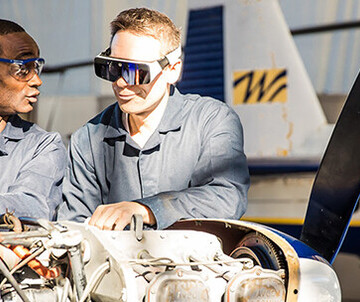16.05.2019 to 16.05.2019
Host: MQ Cultural Tenants
SUBOTRON pro games: Work beyond the games industry
FREE ENTRY, ART, FILM & DIGITAL CULTURE


Thu, May 21, 19:00
SUBOTRON pro games : Work beyond the games industry
Programmers, graphic designers, sound- and 3D designers have been successfully trained for the games industry at Austrian educational institutions for some years now. Some become independent entrepreneurs or gain further valuable experience in an established local studio, some even venture abroad. But is it also possible to utilize the relevant education outside the industry and use it for other fields of work?
In short presentations and a roundtable, experts discuss their careers during which they gained a foothold in other professions. What opportunities and challenges were they confronted with at work and in everyday life, and how did they master them? After the panel, the participants answer questions from the audience and are available for individual conversations.
Participants
Daniel Wagner (CTO at DAQRI)
currently leads the DAQRI Austria Research Center. Before that Daniel was a Senior Director of Technology at the Qualcomm Austria Research Center. He received his MSc from Vienna University of Technology and his PhD from Graz University of Technology. Daniel is well known for pioneering the research area of Augmented Reality on mobile phones. During his PhD study he developed the first 3D tracking library running in real-time on PDAs and mobile phones. He created the well known “Invisible Train game”, he presented the first 6DOF natural feature tracker running in real-time on mobile phones and he designed the multi-platform Studierstube ES software stack. Daniel is the author of over 30 peer reviewed papers published at international conferences and journals. He gave more than 70 talks all around the world to academic and commercial audiences and was a visiting researcher at HITLab New Zealand. Before joining Qualcomm Daniel was the deputy director of the Christian Doppler Lab at the Graz University of Technology.
Maria Schimkowitsch (researcher at VRVis)
studied Game Engineering and Simulation at the FH Technikum Vienna, and started working as junior researcher at the VRVis in 2016. She worked initially for the EU-project ARCHES, which aims to create a more inclusive cultural environment for people with different access needs by a.o. developing new technologies that help experiencing pieces of art in different ways. One of those technologies was a tool she worked on that makes paintings tangible for the blind.
In 2019 she joined the Visual Analytics group to work on the FFG-ASAP funded project MINERVA, whose goal is to develop an integrative, holistic and analytic support for planetary scientists to analyse the measurement data retrieved from Mars.
Christian Bazant-Hegemark (artist)
programmed video games at Rockstar Vienna (2000-2006) before leaving the industry. He then studied fine arts at the Academy of Fine Arts, Vienna (Harun Farocki, Daniel Richter, Gunter Damisch, 2006-2011), followed by a PhD thesis on painting and digitial technologies (Elisabeth von Samsonow, Felicitas Thun-Hohenstein, 2011-2015).
Bazant-Hegemark predominantly works in drawing, painting and code – heavily mixing analog with digital practices. He is represented by Galerie Voss (Düsseldorf) and unttld contemporary (Vienna), and has exhibited in solo shows in Paris, Leipzig, Seattle, Brno, Düsseldorf, Salzburg and Vienna.